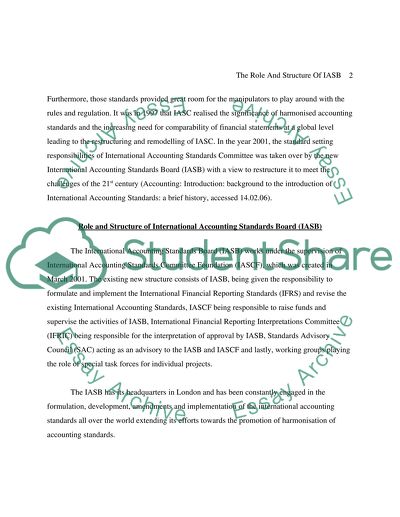Cite this document
(History of International Accounting Standards Board Assignment - 1, n.d.)
History of International Accounting Standards Board Assignment - 1. Retrieved from https://studentshare.org/sociology/1535996-the-role-and-structure-of-iasb
History of International Accounting Standards Board Assignment - 1. Retrieved from https://studentshare.org/sociology/1535996-the-role-and-structure-of-iasb
(History of International Accounting Standards Board Assignment - 1)
History of International Accounting Standards Board Assignment - 1. https://studentshare.org/sociology/1535996-the-role-and-structure-of-iasb.
History of International Accounting Standards Board Assignment - 1. https://studentshare.org/sociology/1535996-the-role-and-structure-of-iasb.
“History of International Accounting Standards Board Assignment - 1”, n.d. https://studentshare.org/sociology/1535996-the-role-and-structure-of-iasb.


